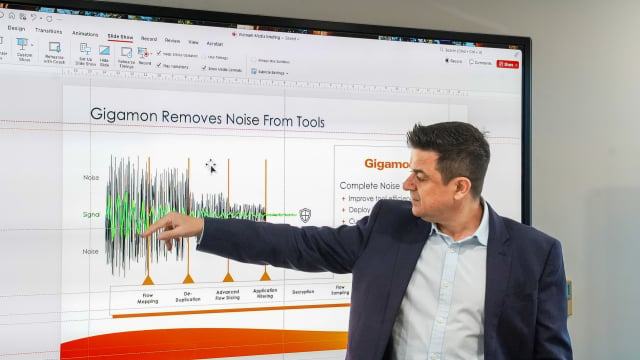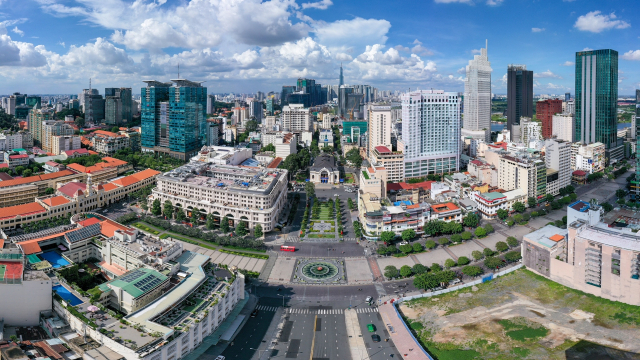Leader Talk
Vietnam turns semiconductor vision into action
The global semiconductor industry is being reshaped by geopolitical tensions, shifting supply chains, and the surge of digital technologies.

Vietnam is taking concrete steps to transform its semiconductor ambition into reality, marking a new phase in the country’s high-tech development.
A combination of clear national strategy, performance-based incentives, and talent investment is laying the groundwork for Vietnam to move from a promising alternative to a credible player in the global chip value chain.
According to Bui Tuan Minh, Country Tax & Legal Leader at Deloitte Vietnam, the global semiconductor industry is being reshaped by geopolitical tensions, shifting supply chains, and the surge of AI and digital technologies.
Semiconductors have become strategic national assets. Countries are no longer competing purely on cost, but on capability and resilience.
Major economies including the United States, the European Union, Japan, South Korea, India, and China are all investing heavily to secure their own positions. For Vietnam, long recognised for its strengths in electronics assembly and testing, this is a decisive moment where vision must turn into action.
From policy vision to practical incentives
On 21 September 2024, the Prime Minister approved the National strategy for the development of Vietnam’s semiconductor industry to 2030, with a vision to 2050 through Decision No. 1018/QĐ-TTg.
At the heart of this strategy is the formula C = SET + 1, where C stands for chip, S for specialised circuits, E for electronics, T for talent, and +1 symbolises Vietnam as a safe, reliable destination in the global supply chain.
This formula reflects an integrated approach that combines industry expertise, a deep supply chain, and a skilled workforce supported by long-term policy stability.
The shift from traditional tax holidays to performance-based incentives represents a key policy evolution. Under Decree No. 182/2024/NĐ-CP, which established the investment support fund, semiconductor projects can access direct financial assistance from the State budget.
R&D centres may receive subsidies covering up to 50 per cent of initial investment costs, while other projects benefit from annual support tied to training, R&D, and infrastructure spending.
Further reinforcement came with the Law No. 71/2025/QH15 on digital technology industry, effective from 1 January 2026, which sets a comprehensive legal foundation for emerging technology sectors. Together, these frameworks signal Vietnam’s move from generalised incentives to targeted industrial strategy.
At the subnational level, local governments are becoming proactive players. Ho Chi Minh City and Da Nang have both identified semiconductors as strategic industries, offering super-deductions for R&D, workforce training support, and streamlined procedures.
This collaborative approach, combining central policy with local execution, is seen as critical to attracting global investors and building a sustainable ecosystem.

The government’s plan to train 50,000 semiconductor engineers by 2030 highlights serious intent, but experts stress the need to ensure quality and practical relevance.
Universities are encouraged to partner with industry for hands-on learning and research collaboration, while vocational programmes focus on technical roles in production, testing, and maintenance. National scholarship schemes linked to industry placement or overseas study are also being discussed.
With national frameworks in place and global attention increasing, Vietnam’s semiconductor future now depends on delivery. Transparent implementation, predictable incentives, efficient infrastructure, and deepened international cooperation will be decisive.
Minh noted, Vietnam has built the foundation, now it must prove its ability to execute.
The next decade will determine whether the country can turn its semiconductor strategy from aspiration into achievement.
Leading with empathy in Vietnam’s billion-dollar investment flows
Cutting red tape in APA approvals to speed up tax negotiations
The change in APA approval authority is expected to shorten processing time and enhance business proactiveness in international tax negotiations.
Enterprise cybersecurity is under threat from the inside
As hybrid cloud systems grow more complex, Vietnamese enterprises are struggling to detect cybersecurity threats moving laterally within their own networks.
Breakthrough for the international financial center ambition
The submission of the draft resolution on Vietnam’s international financial center to the National Assembly heralds a new developmental era for the country.
How leadership philosophy redefines hospitality in Nha Trang
More than just running a 5-star resort, Kristian Petersen is redefining the art of hospitality with a humane and sustainable leadership philosophy.
When organic becomes an inspiring wellbeing lifestyle
For Tyna Huynh, co-founder of Drinkizz, organic is not just a food choice but a way of life that fosters a deep connection between people, nature and community.
Garment factories embracing respectful workplaces
Embracing respectful workplaces could very well be the key to unlocking a more prosperous future for Vietnam's garment industry.











































